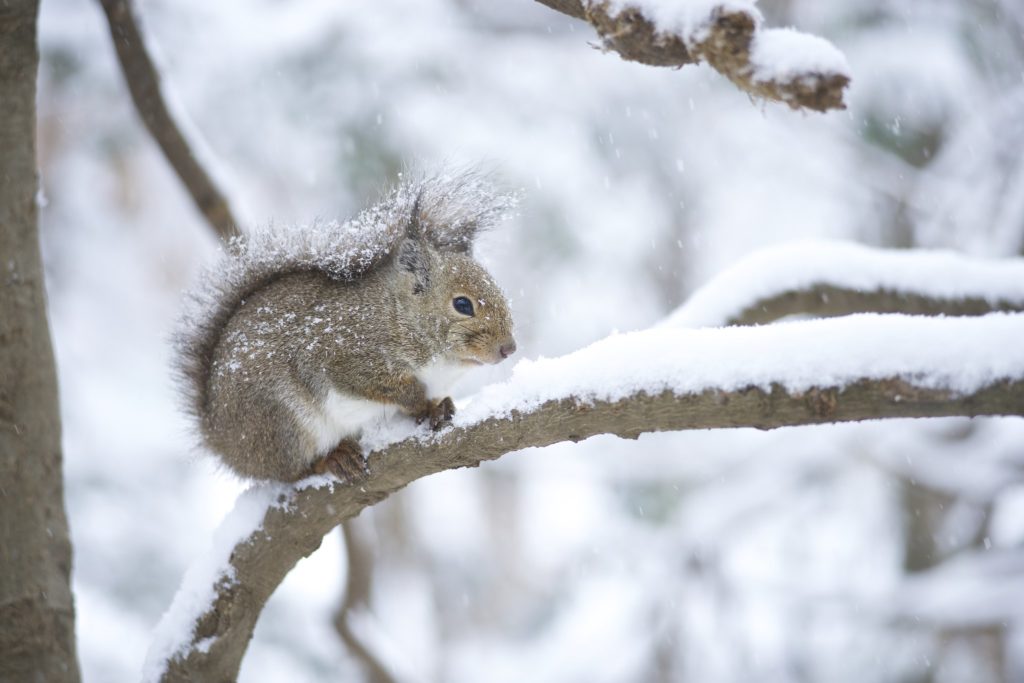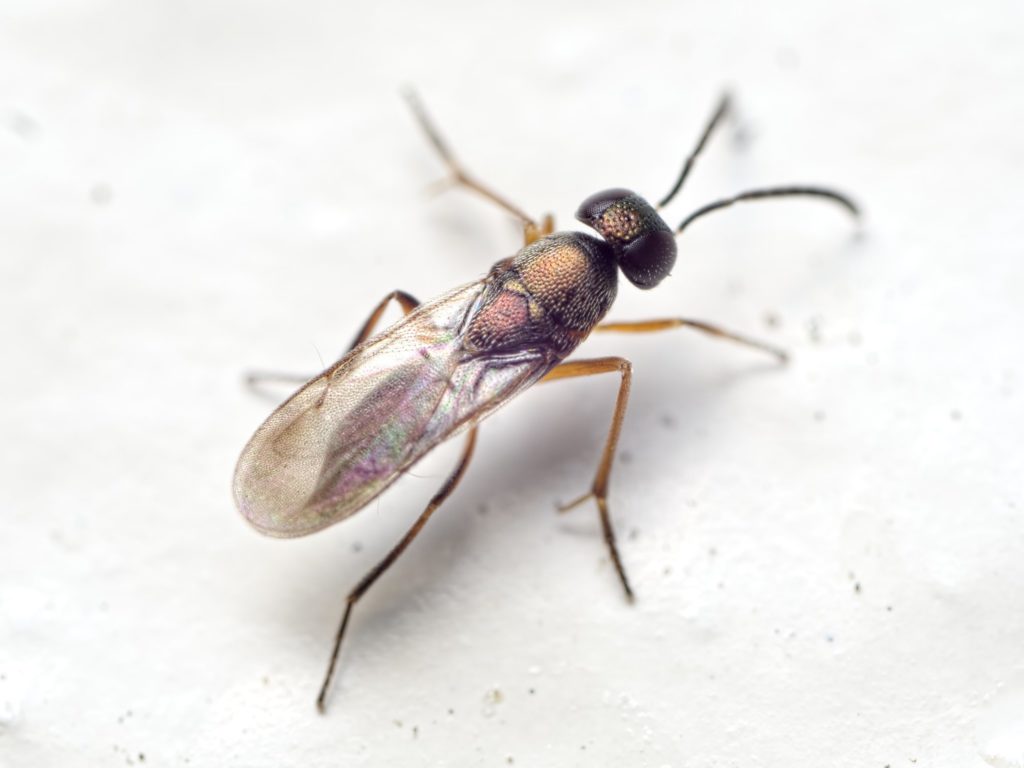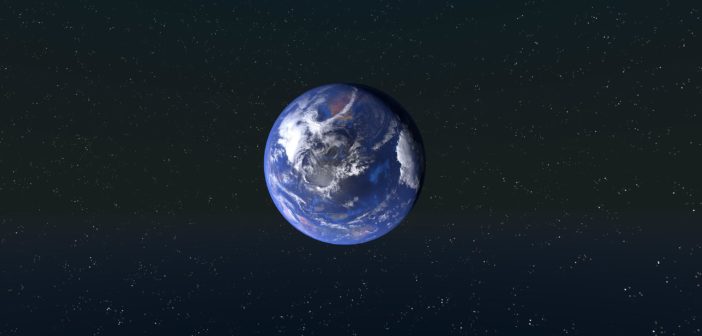Many people who care about animals (be they farmed/domesticated or wild) or the environment seem to think that these animals or the planet would be better off without humans. I want to argue here why humans disappearing from the face of the planet (whatever that would mean or imply for the humans themselves) may not be a good thing for non-human life, at least not in the long run.
Yes, we’re responsible for incredible suffering
That the presence of humans on this planet could be a good thing for animals probably sounds like a counterintuitive idea to many readers. On my blog I have a post titled “Would you press a button to make humanity go extinct?” Many of the comments on the post suggested that yes, indeed, it would be good if humans went extinct somehow. Some comments were actually so full of expletives about the human race that I didn’t publish them.
Obviously, Homo sapiens are responsible for incredible suffering of both farmed and wild animals. Regarding farmed animals, we raise and slaughter about seventy-five billion of them every year, with most of them living and dying in appalling conditions. This excludes the number of fish raised in aquaculture, who are measured by weight. Regarding wild animals, there are the billions of fish we catch in the sea, and there is the devastating impact of our human activity on the climate, wildlife habitats, and so on. There is no way to deny any of this.
If our species would suddenly disappear entirely, certainly those seventy five billion chickens, cows, pigs and so on would not be raised anymore.3 They would simply not exist and therefore not suffer, which would be a good thing. The fish would no longer be plucked out of the sea. As the traces of our existence would fade away, anthropogenic climate change would, after quite some years, become a thing of the past. The wild animals would claim all the areas that we took from them, and would live their lives free of any human impact. It would be as if we Homo sapiens had never been here.
I know that to some people, a scenario like this sounds great. And indeed, going by just this reasoning, one can understand why people who love animals, as well as the natural world at large, would see many benefits in humans no longer being around.

But life in the wild is no picnic
I think the belief that the absence of humans from the planet would be a good thing for animals is often based on the idea that life for animals in the wild (which, without the presence of humans, would be the state for all animals) is generally okay, and that even if it isn’t, it could not or should not be improved on by humans.
This view, I think, is misguided. It is important to emphasize that we’re dealing with a lot of uncertainty here, but it is quite possible that life in the wild entails on average more suffering than joy for many species of animals. This would be so because in the wild, almost all creatures have to constantly deal with tremendous challenges, like shortages of resources (suffering from hunger and thirst); averse climatological circumstances like drought, heat or cold; disease; parasites; predators and so on. It’s hard to have a truthful idea at this moment, for instance, of how often and how intensely the fear of a predator impacts an individual’s quality of life, just to name one thing, but some research demonstrates that the fear predators inspire can have PTSD-like effects in prey animals.
Objections to alleviating wild animal suffering

It’s quite possible that you do believe that the lives of wild animals are full of suffering, are maybe even hellish, but that you also think that 1) we should not try to make things better and/or we can not reliably make things better (by “reliably” I mean without making things worse).
First the should not. You might think that even if the best available evidence suggests that we can make things significantly better for at least some animals in some areas, we should not do so when we are not the cause of their suffering. This seems erroneous to me. We will, at least in theory, alleviate the suffering of humans even if we don’t have anything to do with that suffering. Why would we only protect wild animals from human harm, but not from the harm nature may inflict on them? For the animal in question, it obviously does not matter what the source of their suffering is. The idea that we shouldn’t try to prevent natural harm coming to animals is probably based on the mistaken idea that there is a fundamental divide between the natural and the human world, and that what happens in nature, stays in nature, so to speak.
Second, the could not. You may believe that yes, there is a lot of suffering in nature and that yes, it would be a good thing if we’d make things better for wild animals, but that we can not reliably do so. This, I think, is a mistake as well. There is no reason to think that at the very least in certain limited situations (but probably on a much grander scale as well) we could not reliably make things better. Indeed, we are already doing so here and there. One example is the eradication of rabies in fox populations in Europe. And on a small scale, many of us would save animals from natural disasters like forest fires.
Improving on the natural state
I could point you to many horrible videos of what happens in the wild (with no human being responsible for it). If you’re not convinced that it can be really bad, please go have a look (here is one, for instance of two baboons eating a gazelle alive, while we can hear her cry out). I say this because your view of how good or how bad things are in the wild probably influences your answer to the question whether humans should improve upon the lives of wild animals if they can reliably do so.

For now, I am going to assume that you agree with me that the natural world can be a very harsh place and that life in the wild can be quite bad for many individuals, at least for certain periods of time.
Clearly, humans did not consider the natural state – where one is so vulnerable to disease, predation, parasites or the climate – a desirable state. And so, after thousands of years, we have to quite some degree managed to escape the dangers and limitations of this natural state – including some of the limitations of our own biology – by developing culture, science and technology. We consider it generally a very good thing that we are now less vulnerable to disease, starvation, and predation than we once were. So why would we not wish this for every sentient being on earth, be they wild or not wild, human or not-human?
Humans are also capable of a lot of good
What you think about all this will depend, among other things, on your view of humans, and on where you think we might be headed in the coming decades and ages.
Those who believe humans better disappear may compare us to being a cancer for this planet. There is, as stated, certainly a lot of horrible stuff that we do. Even as we are already capable of incredible technological feats, and even as we are already doing beautiful things, both for our fellow humans and for other species, there is still a long way to go.
Technologically, we are already capable today of improving the lives of animals in the wild to some extent, but we will probably be able to do much more in the future. Morally, our civilization in general is not yet at a level where it would put a lot of effort into helping non-human beings, and therefore indeed the technology that we do have is often used to the detriment of wild animals. You may believe it will never get any better, and that we’ll just keep destroying the planet and all who live on it. But there is no reason that this would be a given.
There are many reasons to think that our civilization is advancing: that we are creating affluence for more and more people, turning our backs on more and more forms of discrimination, inventing ever more powerful technology that could at least in theory make the world better. Interestingly, it seems hard to be unbiased in our views of human progress, and there seems to be a perception that those who believe in progress are often more conservative than those who think things have never been worse. It seems more politically correct, as it were, to not believe in progress.
The long term view
No doubt will we continue to inflict harm on animals, both wild and domesticated, for quite some time. And yes, if humans disappeared now, the suffering that we presently inflict would be avoided. However, let’s take a long term view. Suppose that after, say, three hundred years we achieve a moral and technological level that allows us to structurally improve the wellbeing of all sentient creatures. This would mean that a potentially infinite number of generations of wild animals would be able to benefit from our advancements for potentially many, many millennia. Whereas, if we had disappeared, those wild animals would have lived on in their wild situation, with little hope of improvement, for potentially eons to come.
The vast majority of this planet’s sentient beings are non-human wild animals. If the human species would disappear, the chance of creating a world that is a good place to live for most earthlings is lost. Maybe not lost forever, but it could take millions of years before another species could be able to rise above the limitations which the natural world has imposed on it, and pull off such structural and significant improvements.
Many people will point out how our interventions in nature usually have really terrible effects. But those interventions weren’t done with the intention to make things better for wild animals in the first place. They are thus no point of reference and can’t tell us much about the value and consequences of more well-intentioned and skillful interventions in the future. Many people will also describe the idea that we can and should improve the lives of wild animals as hubris, or arrogance. Our species has certainly been guilty of hubris, but there is, again, no reason why we could or would only act out of hubris, and recklessly. We may, in the future, do very careful trials and experiments, inspired by compassion for our fellow earthlings, and with humility. Hubris need not remain a part of it.
In conclusion
I need to again emphasize that there is a lot of uncertainty in all of this. We won’t know for some time how good or bad different individuals within different species have it in the wild. We don’t know to what extent humans will continue to have the opportunity to smarten up and wise up.
Still, we have good reason to believe that wild animals are experiencing a lot of suffering in the natural world, and that humans, even as we are still inflicting a lot of harm on both wild and domesticated animals, might some day be in an excellent position to help them. Similarly to how we use technology to improve the lives of human beings (just consider how humans suffered before we discovered anesthesia), a strong case can be made for using science and technology to improve the lives of non-humans who are in desperate need of help. We can learn to do this carefully, gradually, with humility, and with compassion. And so, if we consider all sentient life, it seems reasonable to suggest that the continued existence of humans is a good thing, or at the very least has the potential to be a good thing, for the non-human world.
Thanks to Jack Hancock Fairs for his comments on a draft of this article. Check out his great Youtube channel.
A bibliography on the topic of wild animal welfare, with articles by people who have thought about these things much more than I have, can be found here. I applaud all researchers, philosophers, biologists, etc., who are not shying away from studying this very important topic.
Featured image: Earth from space. What would the planet be like without humans? Image credit Kristian Fagerström, CC BY-SA 2.0.







3 Comments
A great article, With lots of information in it, these articles help users interested in the site and continue to share more. thank you very much! If you have more time, please visit:
This is, i feel, a very weak and desperate attempt to justify your human exisitance on this planet.
Yes animals suffer greatly in nature, but it is nothing on the extend of suffering we as humans cause them. Yes a gazelle may suffer for a few hours while it is eaten alive, but thats nothing on 50 years of imprisonment, pain and suffering of say an animal in medical experimentation.
if you feel that it would be possible for the human race to develop enough compassion for another species before all other species go extinct and that it would aulturistically help them, then you are not looking at what this species is still doing to itself!
Unfortunately it is all theoretical anyway as it is impossible to wipe this species from the planet, but you are going to have to come up with better arguments than these to make me think they are worth keeping.
looking at what this species is still doing to itself!
Unfortunately it is all theoretical anyway as it is impossible to wipe this species from the planet, but you are going to have to come up with better arguments than these to make me think they are worth keeping.